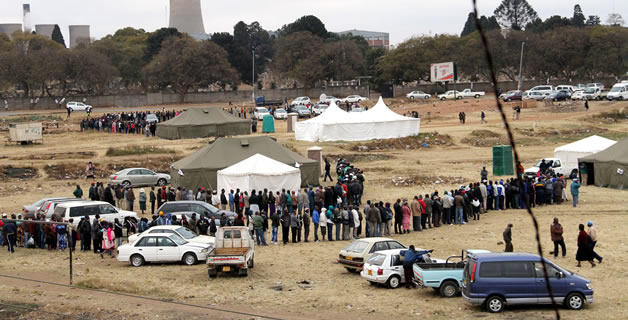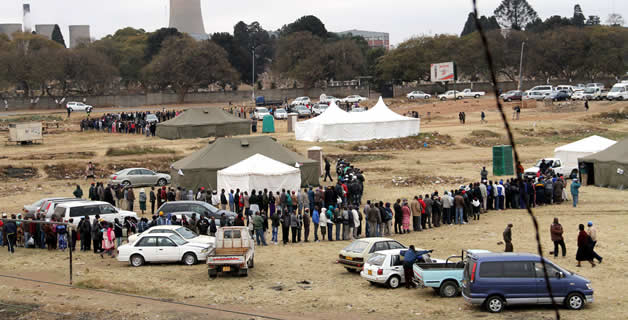Zimbabwe elections: Contest that never was

Josephat Sinvula
YET another election has come and gone in Zimbabwe. As some would have it, things have not changed on the political landscape. I would like to go off on a tangent to oppose popular opinion and share how the just-ended election is a landmark in Zimbabwean history. Zimbabwean politics has exhibited a unique character in that the people of Zimbabwe have gone through the same economic hardships that have led to civil unrest and the toppling of governments in other parts of the world, yet the people have never been close to such an uprising.
This tells me there is a level of understanding and appreciation among the locals of the Government’s land reform policies, that were the cause of economic sanctions.
The economic hardships that followed are characteristic of any revolution.
The MDC party led by Morgan Tsvangirai, a former trade union leader, took advantage of the prevailing economic meltdown and, in fact, facilitated and supported the implementation of such sanctions.
The MDC would later split up into factions led by Professors Arthur Mutambara and Welshman Ncube.
During the 2008 elections, the MDC and splinter political factions only got votes because it happened at the peak of the sanctions and people were voting for change and not necessarily for the MDC party.
Once the economy was “dollarised”, things went back to normal and now only MDC’s true followers voted for them.
Inside sources within Zanu-PF have indicated that President Mugabe wanted to go even before the 2008 elections, but his party would not let him because, being a liberation icon, he is still their best chance for a landslide victory.
Whereas change is required, it is the infusion of young blood into the ruling party that is needed rather than a new ruling party.
The current opposition is not viable.
They lack a critical mass of intellectuals and politicians that can form a government for such a large economy and society.
They are opportunists who took advantage of the sanctions imposed by the West after the land reform programme.
Since the signing of the Global Political Agreement (GPA) between Zanu-PF and MDC in 2008, Tsvangirai’s party lost sight of the need for rapid and comprehensive institutional reforms in the early years of power-sharing.
It (MDC) expended most of its energies in fighting for self-enrichment of its top elite by insisting on hefty appointments to the central and provincial governors, attorney-general and the ministry of agriculture instead of focusing its energy on institutional reforms.
During the elections of July 31 2013, the MDC-T was caught napping and in total disarray.
The Western financiers did not pump millions of dollars into their campaign the way they did in 2008.
Because of the lack of a solid foundation, the MDC party self-destructed as 29 of its members ran as independent candidates as compared to three from Zanu-PF.
Despite all the demagoguery by MDC-T and efforts to delay the elections, the term of Parliament expired on June 29 2013, and hence the elections had to be held by 31 July 2013.
This statutory provision of the law was strictly applied by the Constitutional Court of Zimbabwe.
On the other hand, Zanu-PF had been preparing for the elections since the signing of GPA with MDC in 2008.
In the final analysis, their ideology is rooted in the emancipation of the African people way beyond nominal flag independence.
This got them 61 percent of the presidential votes and 76 percent (more than two-thirds majority) of the parliamentary votes.
The Zimbabwe harmonised elections held on July 31 2013 were, therefore, never the contest they were before.
The opposition never stood any chance of winning and lost dismally. No wonder Zanu-PF supporters carried a coffin symbolising the death of MDC following the announcement of election results.
A lesson can be drawn for Africa from Zimbabwean politics.
Opposition parties must be home-grown and by genuine politicians rather than people looking for a fast way to power, who will so easily split to form multiple opposition parties in the face of minor hardships.
Josephat Sinvula is a holder of BSc in Urban Studies and Planning from Virginia Commonwealth University, Virginia, USA, and is a PhD candidate in political science. This article is reproduced from the Namibian.








Comments